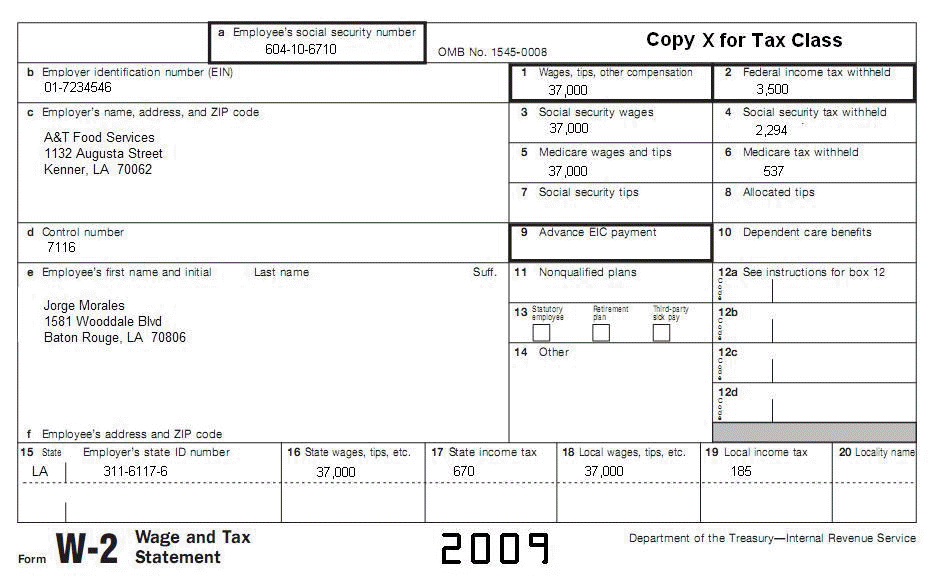|
|
||||||||||
| Back to Tax School Homepage | ||||||||||
|
Tax Topic 9 - Tax Deductions for Travel and Entertainment Expenses
You may be able to deduct the the ordinary and necessary business-related expenses you have for travel, entertainment, gifts, or expenses for transportation. An expense does not have to be required to be considered necessary. This topic will cover what expenses are deductible and how to report them on a tax return. In addition you will become aware of which records you need to prove your deduction and what to do with reimbursements.Student Instructions:Print this page, work on the questions and then submit test by mailing the answer sheet or by completing quiz online. Instructions to submit quiz online successfully: Step-by-Step check list Answer Sheet Quiz Online
Most forms are in Adobe Acrobat PDF format.
Use IRS Publication 463 to complete this assignment. Complete a Form 2106, Schedule A, Form 1040 for Jorge Morales (SSN: 604-10-6710). Jorge is getting a promotion. He will undergo training to become store manager. On behalf of his employer, he will attend training for 6 days for managerial training at the main restaurant. The company is paying for half of all his expenses. Jorge has to bring a statement of his expenses and his receipts to his employer. None of the expenses were included on line 1 of his W-2. Jorge's employer reimbursement was $1,408 (including $375.00 for meals and entertainment). His expenses incurred are the following.
Jorge is single and has no dependents. Get all their basic information from the following W2, including income information. All information is current.
|
||||||||||
| Back to Tax School Homepage |

